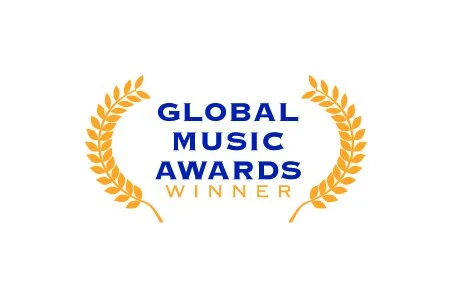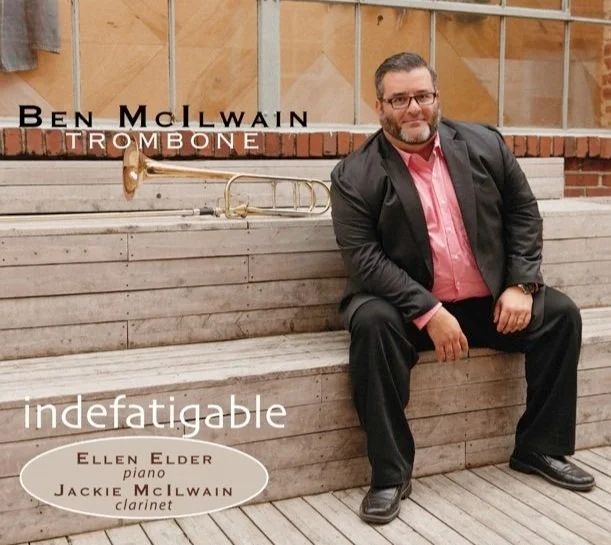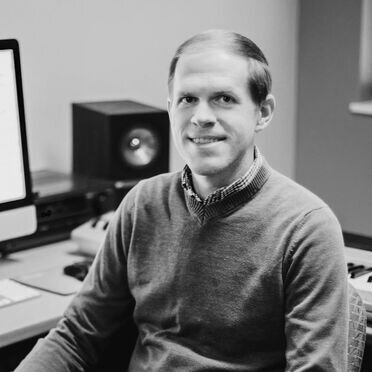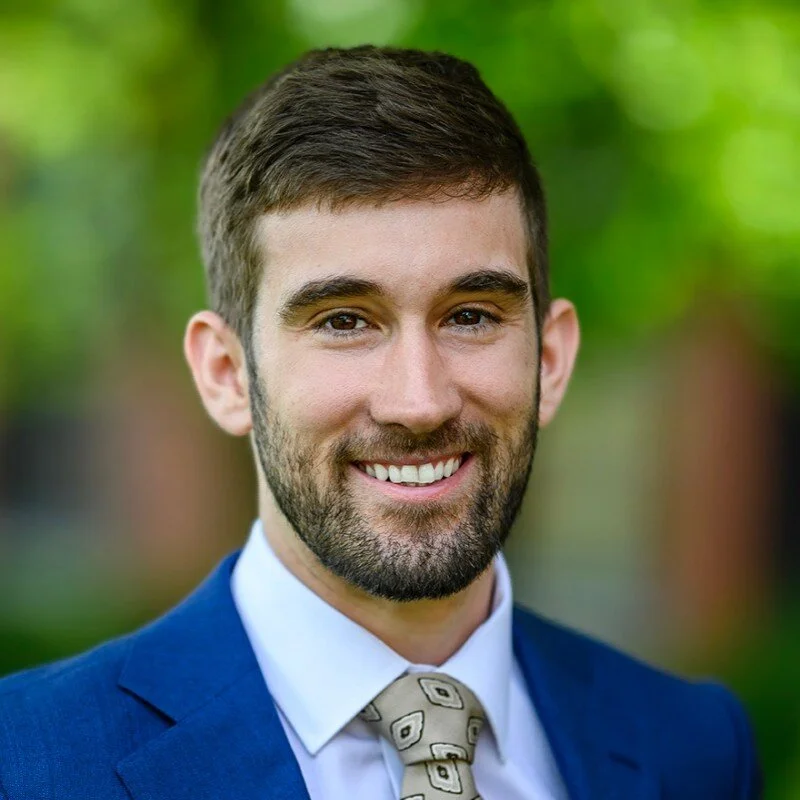
“McIlwain brings each story to life with a wide range of tone colors, a vast articulation palette, and deliberate technical execution…McIlwain plays with exquisite musical intent; each phrase is crafted to convey maximum sensitivity, and emotion…Indefatigable contains wonderfully artistic performances and stirring compositions and makes the album a strong contribution to the solo trombone genre.”
“McIlwain brings each story to life with a wide range of tone colors, a vast articulation palette, and deliberate technical execution…McIlwain plays with exquisite musical intent; each phrase is crafted to convey maximum sensitivity, and emotion…Indefatigable contains wonderfully artistic performances and stirring compositions and makes the album a strong contribution to the solo trombone genre.”
Track List
Secure. Contain. Protect. by James David
2 - SCP-1342: “Future Voyager”
3 - SCP-682: “Hard-to-Destroy Reptile”
4 - Elegy by Joe Buono
Sonatina by Charles Ingram
5 - Stepping Out
6 - Lullaby
7 - Last Call
Symphony No. 2 “Pas de Deux” by Alan Theisen
8 - Entrée
9 - Adagio
10 - Variations
11 - Coda
12 - Galaxy Unknown by Joshua Mize
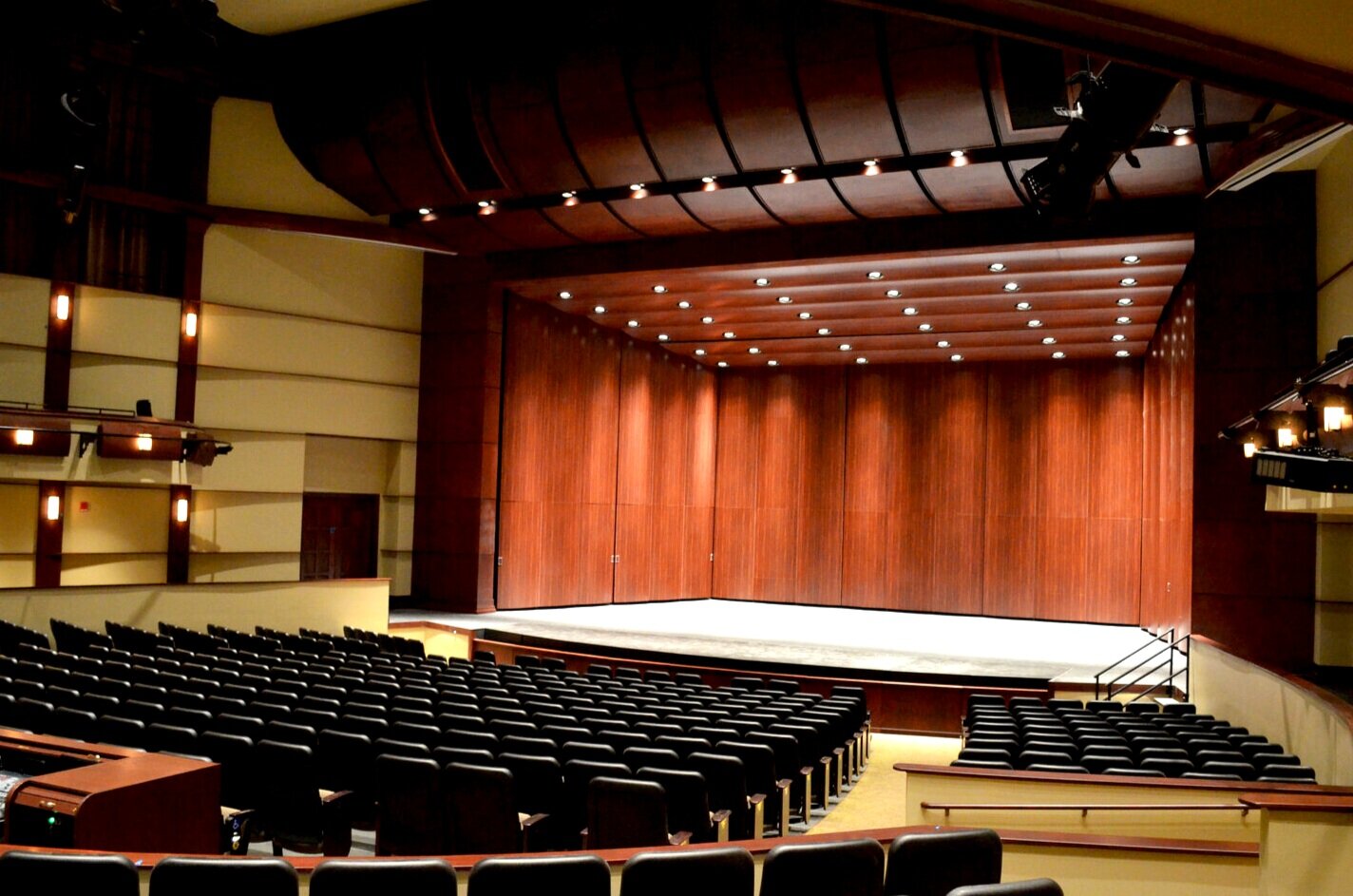
Why Indefatigable?
This album was nearly a decade in the making with the oldest commission dating back to 2012 and the most recent being from 2021. Chasing countless grants to fund the recording project and finding a way to MAKE IT HAPPEN was a FAITH exercise. I will be forever grateful to my friends and colleagues that believed in me and this project including the amazing pianist and close friend, Ellen Elder; my wonderful wife and fierce clarinetist, Jackie McIlwain; the incredibly generous and outstanding human being - and recording engineer, Andrew Gilstrap; my great friend, former roommate, master of all things technology and trumpet - T.J. Tesh, trombone brother and producer- extraordinaire, Nick Laufer; and the one and only Karen Cubides - whose encouragement, support, and wisdom was pivotal to the success of this project. Without them, this album would NOT have happened. A special thank you to the Brownstone Performing Arts Center for letting us use their world-class venue for the recording and Lonnie Young for his piano tech wizardry!
A friend told me once, “keep showing up and just be aware of the resistance. Something special must be happening.” I can say this now, “what a journey it has been!”
Musicians
-

Ben McIlwain
TROMBONE | PRODUCER
-

Ellen Elder
PIANO
-

Jackie McIlwain
CLARINET
Production Team
-

Nick Laufer
-
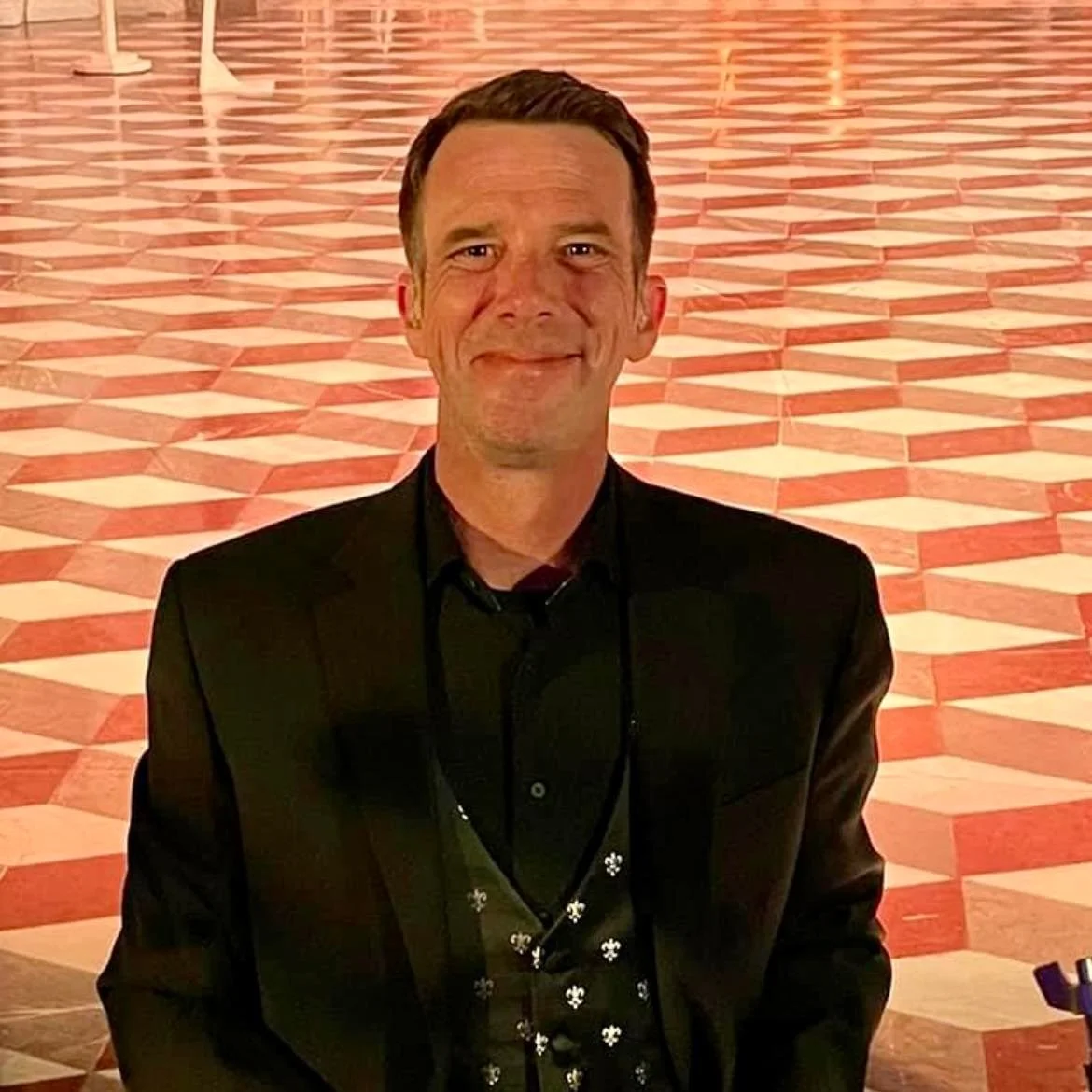
Andrew Gilstrap
RECORDING AND MIXING
-
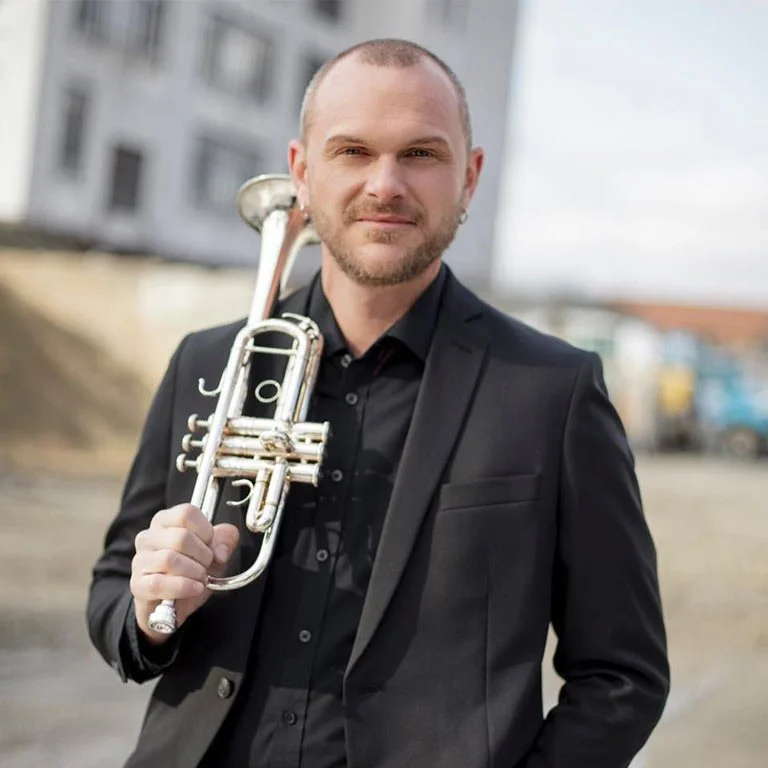
T.J. Tesh
-
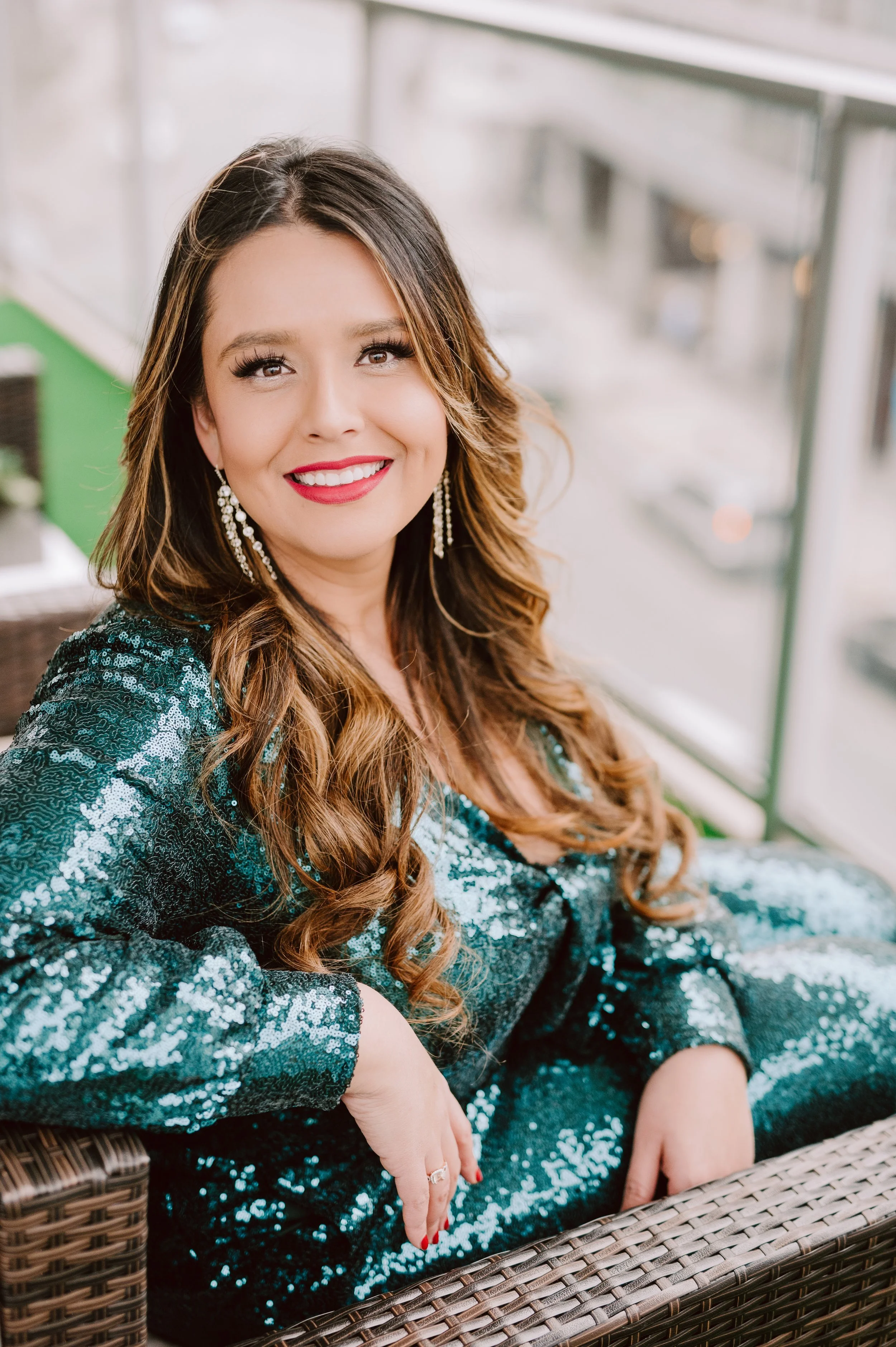
Karen Cubides
-
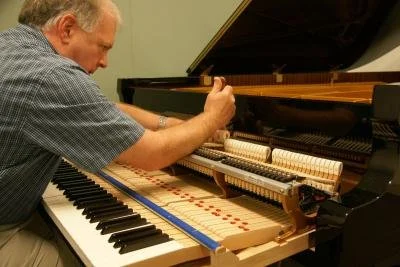
Lonnie Young
PIANO TECHNICIAN
The Composers.
Their Music.
James M. David
About David
Dr. James M. David (b. 1978) is an internationally recognized composer who currently serves as professor of music at Colorado State University. His works have been performed at over sixty national and international music conferences in North and South America, Asia, Europe, and Australia. He has received national and international awards from ASCAP, the National Band Association, the Music Teachers National Association, and the National Association of Composers, USA among others. Previous commissions include projects for the Des Moines Symphony, the US Air Force Band, the Fort Collins Symphony, Joseph Alessi (NY Philharmonic), John Bruce Yeh (Chicago Symphony), James Markey (Boston Symphony), the Playground Ensemble, and hundreds of university music faculty and ensembles. His works are represented on over twenty commercially released recordings on the Naxos, Summit, Mark, Albany, Parma, MSR Classics, GIA Windworks, and Luminescence labels and are published by Murphy Music Press, C. Alan Publications, Potenza Publishing, and Excelsia Music. A native of south Georgia (USA), his music is influenced by jazz and other southern traditional music combined with contemporary idioms. More information at www.jamesmdavid.com.
About Secure.Contain.Protect.
The SCP Foundation is a fictional extra-governmental organization dedicated to securing, containing, and protecting numerous paranormal entities. Created by a thriving online community of writers, each “SCP” is a form of short fiction that describes the physical and mysterious properties of the entity, typically in a dry, bureaucratic tone. This sonata for trombone and piano was inspired by three of these remarkably creative stories.
SCP-882 “Machine God” describes a sentient collection of metallic gears that compels humans to add more and more components to its mass. Anyone near the entity will experience auditory hallucinations of ticking, grinding, and clicking sounds that gradually increase in intensity. The object is depicted musically as a persistent ostinato built by layer upon layer of polyrhythms and quick darting motives.
SCP-1342 “Future Voyager” is an object that is nearly identical to the Voyager I space probe launched in 1977. However, the SCP was constructed in the year 42,412 AD by a civilization hundreds of light years from Earth. Like Voyager, it contains a “golden record” that holds a message for humanity. The civilization that built it found Voyager and learned much of humanity’s achievements in art and science. The two cultures flourished from their communications across the stars. As technology improved and resources dwindled, they eventually clashed and humanity almost completely wiped out its rival. The few survivors sent a replica of Voyager into the distant past to warn humanity of its future and remind them of the music they shared. Famously, the Cavatina from Beethoven’s String Quartet no. 13 was included on the original “golden record” and is quoted in the movement.
SCP-682 “Hard-to-Destroy Reptile” is a large, hyper-intelligent reptilian creature that can withstand and adapt to almost any force or environmental hazard. One of the oldest and most beloved SCP’s, it has become something of a mascot for the author community. The big lizard is given a raucous Latin dance that incorporates slide glissandi as well as reincorporating the previous movements’ themes into its sturdy frame.
Joseph Buono
About Buono
Joe Buono is a musician, software engineer, and former YouTuber. He graduated with dual Master’s degrees in Bass Trombone Performance and Music Education from the Peabody Conservatory in 2015. Since then, Joe became widely known for his work as one of the internationally-acclaimed Melodica Men. Despite having no formal training in composition, Joe’s pieces for trombone have been performed by members of the New York Philharmonic, MET Opera and Atlanta Symphony, among others. Joe currently works as a frontend engineer for Amazon Web Services and lives in Cambridge, MA.
About Elegy
Elegy was commissioned by a consortium of prominent trombonists, led by Dr. Cory Mixdorf of the University of Arkansas and including Dr. Ben McIlwain of the University of Southern Mississippi in 2016. Dr. Mixdorf requested that the piece draw inspiration from mournful works by Rachmaninov, Tchaikovsky and Šulek. Joe Buono composed Elegy after a very dark year of his life, so the piece represents a catharsis of anxiety, depression and loss.
Charles Ingram
About Ingram
Charles Ingram (b. 1951) a native of Gulfport, Mississippi holds degrees in composition from the University of Southern Mississippi where he studied with William Presser and Luigi Zaninelli and in Choral Music from the University of Southern California where he studied with Charles Hirt, James Vail and Thomas Sommerville.
Mr. Ingram spent 31 years teaching music courses to general music students and music majors at Los Angeles Southwest College. After retiring in 2008 as Professor of Music at Los Angeles Southwest College, Ingram moved to Covington, Georgia where he devotes his full time to composition. Most of his recent compositions have been for choral ensembles, art songs, chamber music for clarinet with piano, oboe with piano, solo brass instruments with piano and various combinations of brass instruments. His compositions have been performed across the United States and in Europe. Two of his compositions for Horn, Tuba and Piano (Bonbons and Last Dance) have been recorded by the Eastern Standard Trio. His music is published by Cimarron Music Press.
About Sonatina
The Sonatina for Trombone and Piano #1 is the first of two composed for Dr. Ben McIlwain. The piece is in three short movements. The first movement is in sonata- allegro form. The second movement is Lullaby in ABA form. The third movement is a rustic dance rondo structured as ABACA.
Alan Theisen
About Theisen
Alan Theisen (b. 4 October 1981) is a composer, saxophonist, author, and educator. Influenced in his youth by the careers of Leonard Bernstein and Quincy Jones, Theisen soon established his personal ethos of creating and sharing new music with joyous enthusiasm across multiple artistic endeavors. He continues this commitment to comprehensive musicianship by tirelessly combining the disciplines of composing, performance, scholarship, conducting, advocacy, and pedagogy.
Theisen's compositions encompass a wide array of genres and instrumentation including chamber music, art song, solo piano, concerti, jazz, pop song, musical theatre, symphonies, improvisational music, and more. Praised as coming from “an extraordinarily talented and prolific composer,” his works are frequently commissioned/performed by musicians around the world to audience acclaim. Though Theisen's official catalogue of over seventy pieces is stylistically diverse, his compositions typically feature memorable melodic ideas, emotional sincerity, complex yet sensuous harmony, and dramatic formal designs. A fundamental characteristic of his music is the hybridization of genres. For example, it is common to hear twelve-tone rows in a new jack swing tune, Medieval organum weaved into improvisational music, film noir score tropes in a band piece, and jazz fusion chord progressions underpinning a string quartet. He regards his aesthetic as “Re-Modernist” – rooted in Modernist classical music from the early and middle 20th century yet also informed by hard bop, hip hop, New Wave, and Motown. (Think Miles Davis meets Lutosławski, Stravinsky meets Stevie Wonder.) The artistic goal is not ironic quotation and juxtaposition but an earnest desire to create surprising yet coherent musical communication between composer, performer, and audience.
Theisen is a collaborative composer, easily incorporating input from the performers for whom he is writing. His music is often inspired by ritual, history, myth, virtuosity, visual art, places, phantasmagoria, and the uncanny. Some recent premieres of Theisen's music have occurred at National Sawdust (Brooklyn), New Music Gathering (Peabody Conservatory), and the World Saxophone Congress (Strasbourg, France).
About Symphony No. 2 “Pas de Deux”
Symphony No. 2 ("Pas de Deux") was commissioned by and is dedicated to Jackie & Ben McIlwain, the University of Southern Mississippi Wind Ensemble, and its conductor Catherine Rand. It was an honor to have composed this double sinfonia concertante for such extraordinary musicians at my alma mater.
In classical ballet a pas de deux is a dance in which two dancers, typically one male and one female, engage in a lengthy duet. Likewise, Symphony No. 2 features two primary soloists and is also structured after the four sections of the traditional pas de deux: entreé, adagio, variations, and coda.
Entreé introduces each soloist with a cadenza-like passage surrounded by repetitions of a short, dissonant, widely spaced chord. The melodic material performed by the soloists here will develop and transform throughout the entire symphony.
The ensuing Adagio is a 21st-century interpretation of the saraband (known to classical music lovers as a standard slow movement in Baroque dance suites). Though the harmonic language is decidedly contemporary, the stately tempo, emphasis on beat two, and triple meter are all familiar characteristics of the antique dance form. In this movement the soloists eventually merge before a terrifying climax halts the newfound union.
Movement III, Variations, presents a kaleidoscopic metamorphosis of musical ideas presented in prior movements. The tempo is double that of what the listener has encountered previously. Allusions to latin rhythms, jazz, funk, swing, and fanfares permeate this scherzo-like movement.
The finale, Coda, doubles the tempo yet again as the music launches into a sinister and mechanical presto. Both the soloists and the wind ensemble are required to demonstrate their technical virtuosity. The short, dissonant chord from the opening of the symphony returns and is repeated with increasing frequency as the piece hurtles toward a crashing climax.
Symphony No. 2 had its world premiere on April 27, 2017 at the University of Southern Mississippi. The piece has been subsequently performed at Middle Tennessee State University in February 2019 (with the dedicatees as soloists).
The present chamber version of the work (for clarinet, trombone, and piano) was created by the composer in 2021 at the request of the dedicatees.
Joshua Mize
About Mize
Dr. Joshua Mize is a composer, teacher, and trombonist. He graduated from Pensacola Christian College with a Bachelor's in 2008 and Master's in 2010. In 2019 he graduated from the University of Southern Mississippi with a D.M.A. He has been composing and arranging for various school ensembles for over 10 years. He enjoys taking the electronic aspects of media music and mixing them with "classical" instruments for performance.
About Galaxy Unknown
Galaxy Unknown takes the performer on a space adventure filled with mystery and action! It started out as an idea of composing a piece that utilizes a virtual instrument choir singing “Klingon”. Josh sent a demo sketch idea to me and, being the Star Trek aficionado that I am, I quickly agreed to commission this piece!

Now Available!
In-stock and available for immediate shipping!
